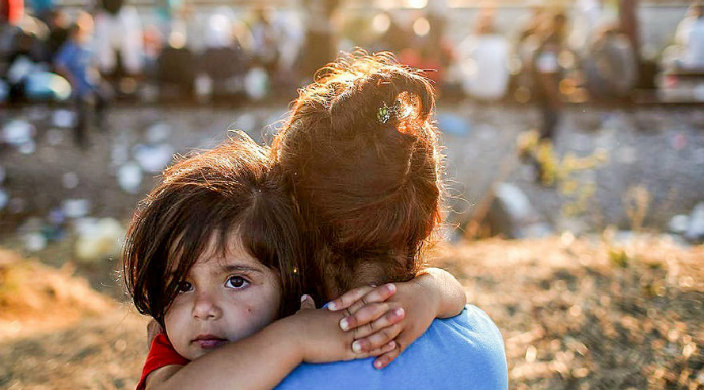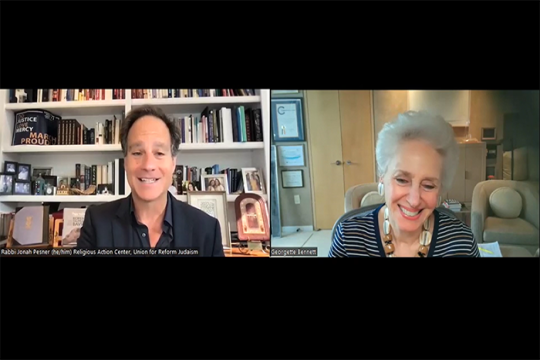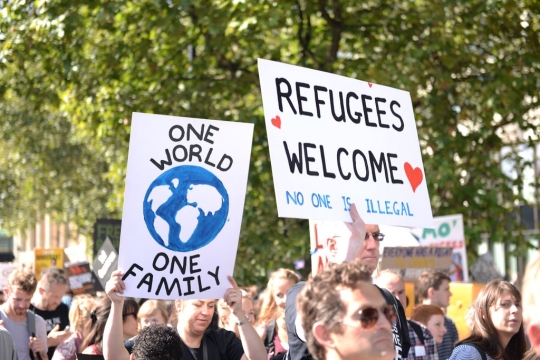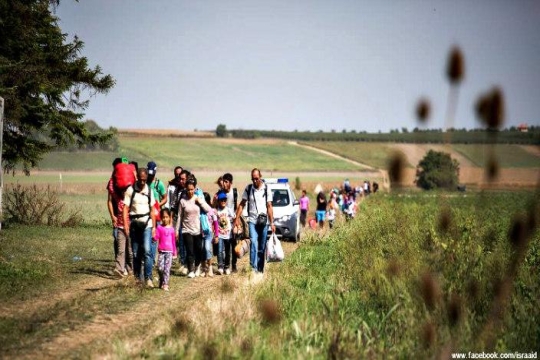
President Trump’s latest executive order severely curtailing the refugee resettlement program and banning entry to the United States from six Muslim-majority countries was slated to go into effect at midnight on Thursday March 16. However, just hours before the order was to be implemented, a federal judge in Hawaii issued a temporary restraining order, halting the executive order across the country. In response, the Department of Justice vowed to continue defending the order in court. The executive order, issued on March 6, is a new attempt at imposing major restrictions on the entry and resettlement of refugees and immigrants in the United States after major provisions of the profoundly unjust order from January 27 were blocked in the Ninth Circuit Court of Appeals. While there have been some changes to original order, the core provisions remain the same.
Following the issuance of the first order, there was major outcry surrounding the detention of Iraqi immigrants arriving with special immigrant visas (SIVs) that they received in exchange for essential services provided to aid U.S. forces on the ground in Iraq. The uproar surrounding the detention of Iraqis with SIVs was so great that the Department of Homeland Security stopped enforcing the original executive order for these individuals before the order was blocked in court.
Under the previous order, Syrian refugees faced an indefinite travel ban. According to the new order, they are subjected to the same 120-day halt in the U.S. refugee resettlement program as individuals from the other nations. Nonetheless, the imposition of the 120-day waiting period is devastating for individuals who have already undergone a lengthy process involving interviews, medical checks and background checks. Each of these necessary components for a refugee’s profile have varying validity periods, so this 120-freeze has significant impact, and can even further slow down the already rigorous resettlement process.
While Iraq is no longer on the list of targeted nations for barred entry, the order will still negatively impact many Iraqis seeking asylum in the U.S. There is a backlog of more than 50,000 Iraqi applicants, and President Trump’s executive order limits the total number of refugees to be resettled in fiscal year 2017 to 50,000 people. Because over 37,000 refugees have already been resettled this fiscal year, the number of remaining spots is woefully inadequate to address the need.
President Trump’s rewritten executive order limits the refugee resettlement program in similar ways to the original order, while seeking to avoid legal challenges that entangled the order from January 27. This order nonetheless has a devastating impact on the tens of thousands of refugees who would have been eligible for resettlement in the U.S. In the face of the worst refugee crisis in recent history, this order represents a moral failure of the U.S. government, and it denies our nation’s history as a land of refuge and a beacon of hope for the world’s most vulnerable people.
Though the court temporarily halted the order, it is still essential to take action and urge President Trump to rescind this order, and urge your Members of Congress to denounce this executive order and to take steps to ensure robust refugee resettlement. If you are in the Washington, D.C. area, please join HIAS and the Union for Reform Judaism at the DC #JewsforRefugees Assembly on March 29 to get involved, and check the Facebook event page for the latest updates. To learn more about refugee issues, visit the RAC’s issue page.
Related Posts

World Refugee Day 2023

World Refugee Day 2022


